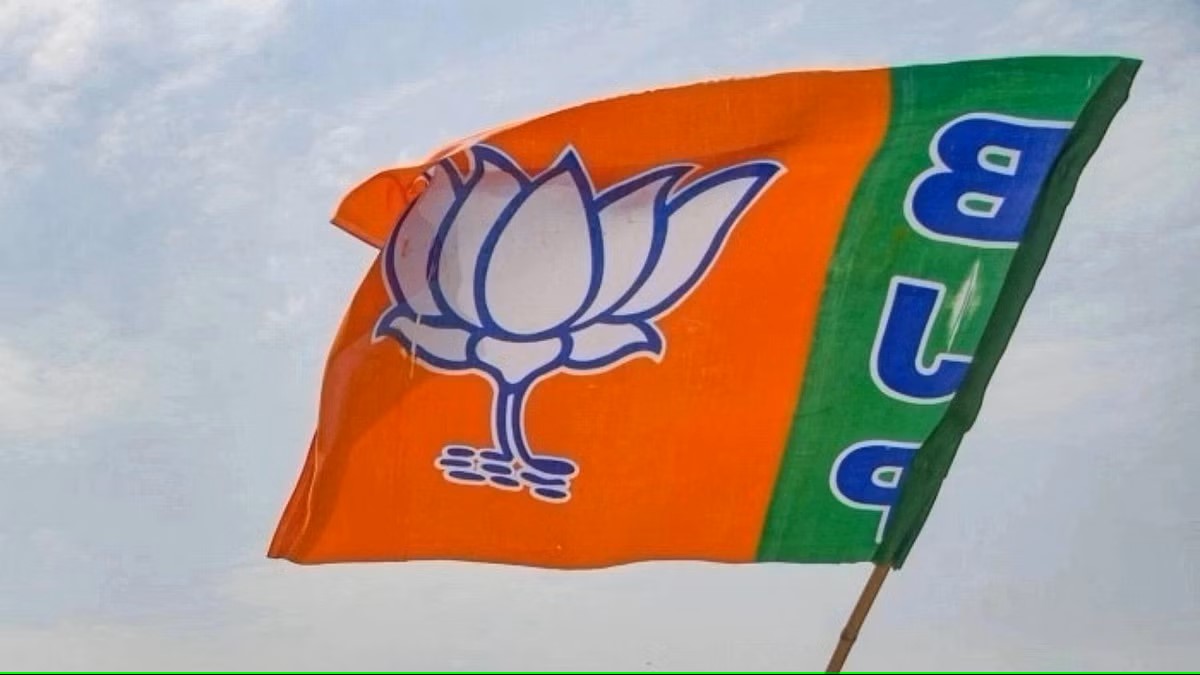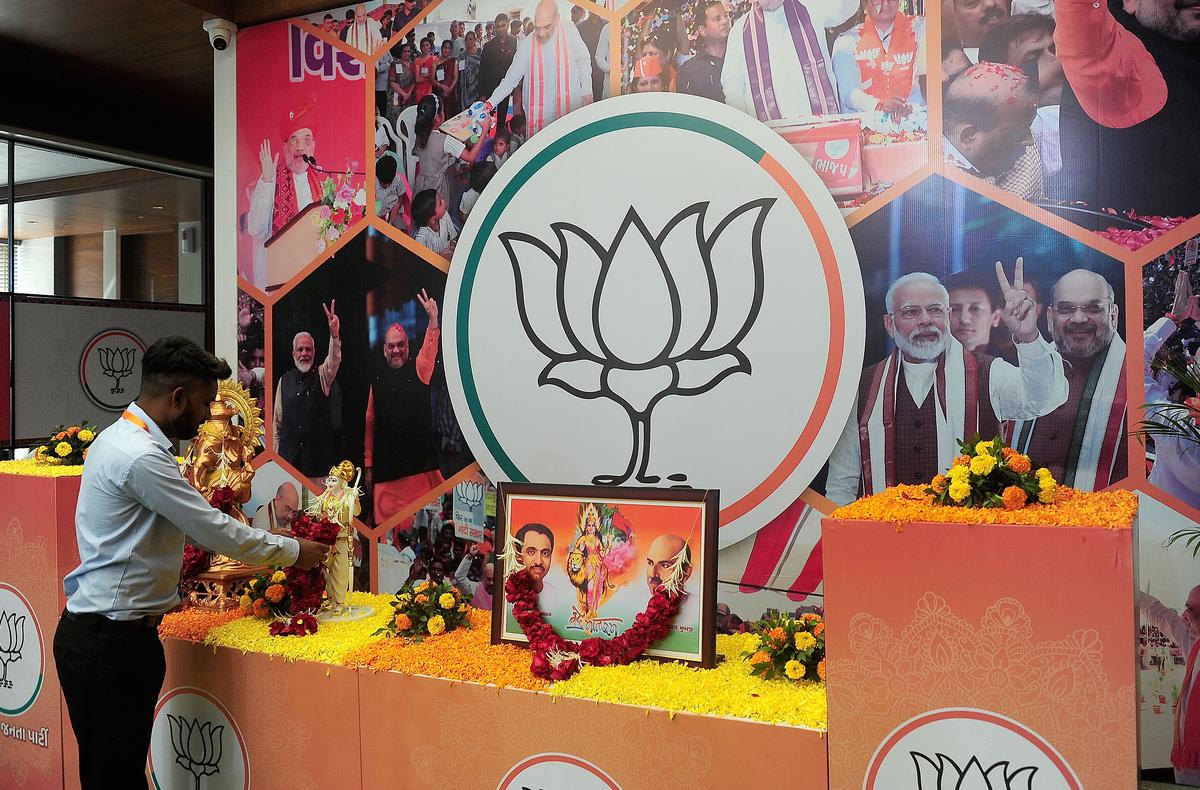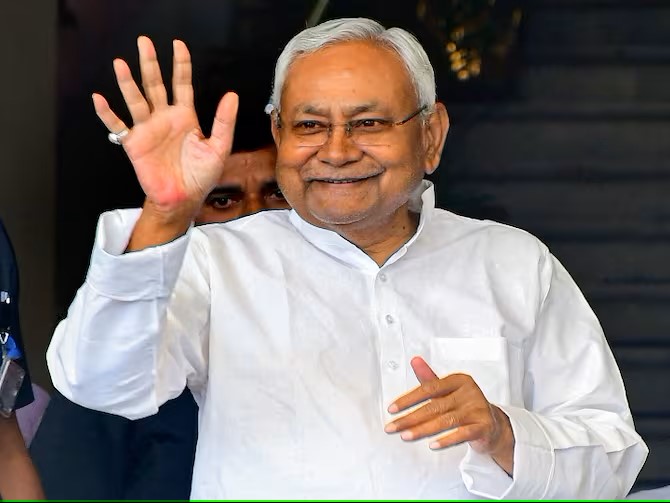In the grand chessboard of the upcoming Lok Sabha elections, the BJP has made its opening move, strategically deploying its pawns, rooks, and knights across 23 states and union territories. Party vice-president Baijayant Panda, known for his meticulous planning and sharp intellect, takes command of the crucial Uttar Pradesh battlefield, aiming to consolidate and expand the BJP’s stronghold in the politically volatile state. In Bihar, where the party recently reaffirmed its alliance with Nitish Kumar’s JD(U), Vinod Tawde retains the in-charge position, leveraging his deep understanding of the state’s complex political landscape.
 Further south, the BJP casts its gaze towards Tamil Nadu, entrusting the ever-reliable Arvind Menon with the task of navigating the state’s dynamic political terrain and potentially making inroads into Dravidian strongholds. In Karnataka, where the party faces a stiff challenge from the Congress, Radha Mohan Das Agarwal steps into the shoes of veteran Arun Singh, tasked with energizing the party cadre and capitalizing on any potential cracks in the opposition armour. The battle in West Bengal, long a thorn in the BJP’s side, sees the return of Mangal Pandey, his fiery rhetoric and organizational skills aimed at breaching Mamata Banerjee’s formidable fortress.
Further south, the BJP casts its gaze towards Tamil Nadu, entrusting the ever-reliable Arvind Menon with the task of navigating the state’s dynamic political terrain and potentially making inroads into Dravidian strongholds. In Karnataka, where the party faces a stiff challenge from the Congress, Radha Mohan Das Agarwal steps into the shoes of veteran Arun Singh, tasked with energizing the party cadre and capitalizing on any potential cracks in the opposition armour. The battle in West Bengal, long a thorn in the BJP’s side, sees the return of Mangal Pandey, his fiery rhetoric and organizational skills aimed at breaching Mamata Banerjee’s formidable fortress.
However, the strategic map remains incomplete, with the crucial state of Maharashtra conspicuously absent. The BJP’s silence on this front is intriguing, leaving political observers to speculate on the rationale behind the delay. Some whisper about internal discord within the party, while others suggest a calculated move to keep opponents guessing until the last minute. Whatever the reason, the Maharashtra appointments promise to be a political spectacle in themselves, potentially reshaping the electoral landscape in the region.
Beyond the marquee states, the BJP has meticulously placed seasoned figures in strategically important regions. Former Bihar Minister Shrikant Sharma takes charge of Himachal Pradesh, where the BJP looks to retain its traditional stronghold. In the northern reaches, Dushyant Kumar Gautam, known for his grassroots connect, leads the charge in Uttarakhand, aiming to capitalize on the current pro-incumbency sentiment. Meanwhile, the party looks to consolidate its gains in the Northeast, with Biplab Kumar Deb, the former Tripura Chief Minister, entrusted with the task of spearheading the campaign in Haryana.
The BJP’s meticulous deployment extends beyond individual appointments. The pairing of co-in-charges in key states like Bihar and Madhya Pradesh fosters a collaborative approach, leveraging diverse perspectives and ensuring smoother campaign execution. This deliberate focus on teamwork reflects the party’s recognition of the complex and nuanced nature of the upcoming elections.
As the campaign machinery rumbles to life, the BJP’s calculated deployment of election in-charges sets the stage for a captivating electoral battle. From the intricate manoeuvres in Uttar Pradesh to the unpredictable terrain of West Bengal, the BJP’s strategic choices will be dissected, debated, and ultimately judged by the Indian electorate in a few months.



